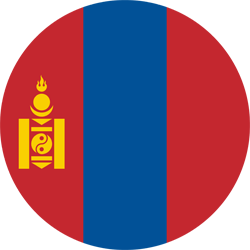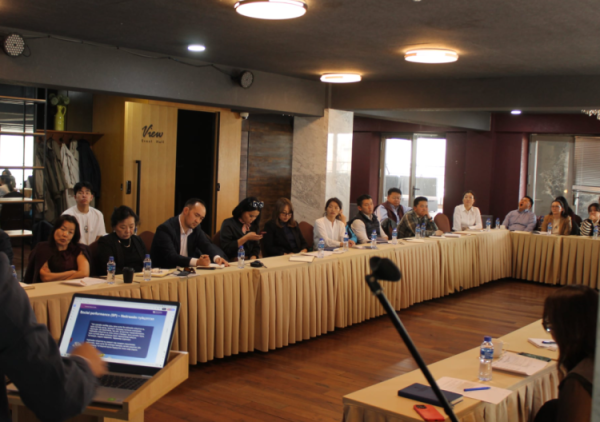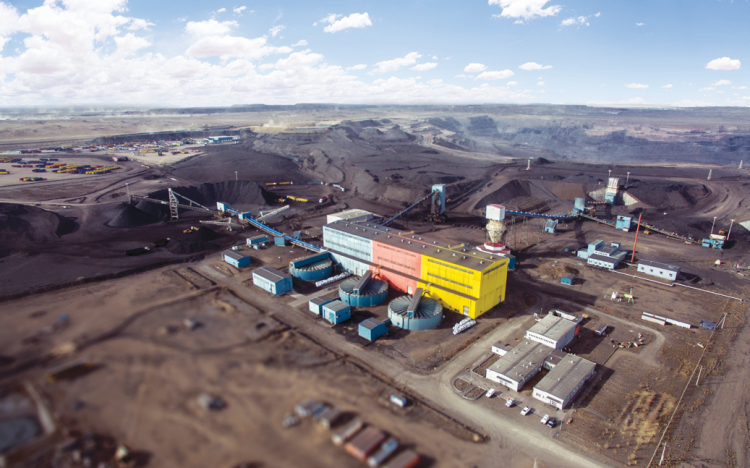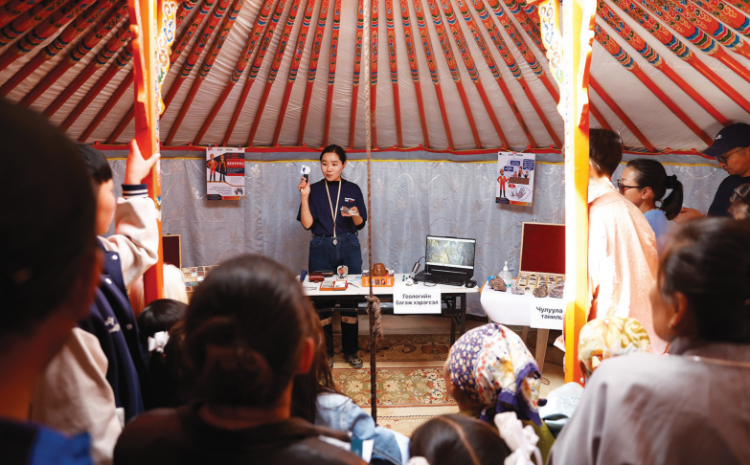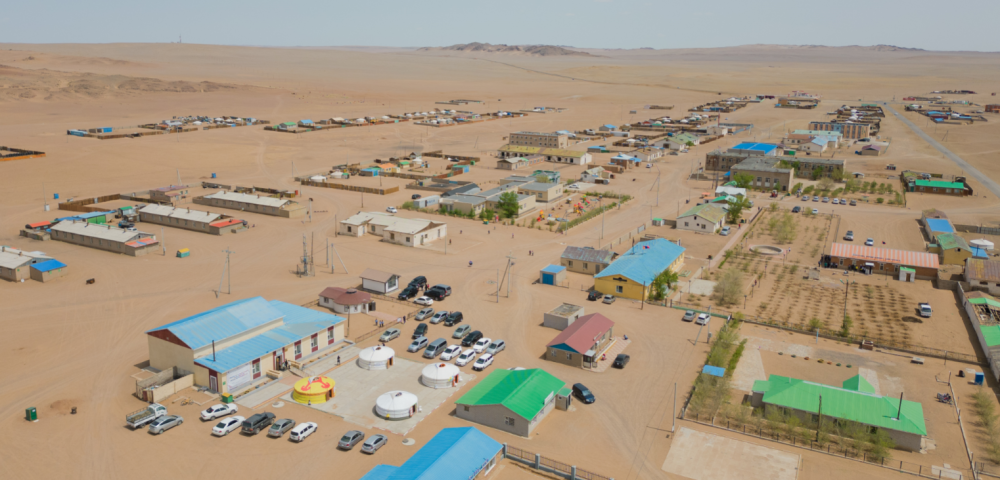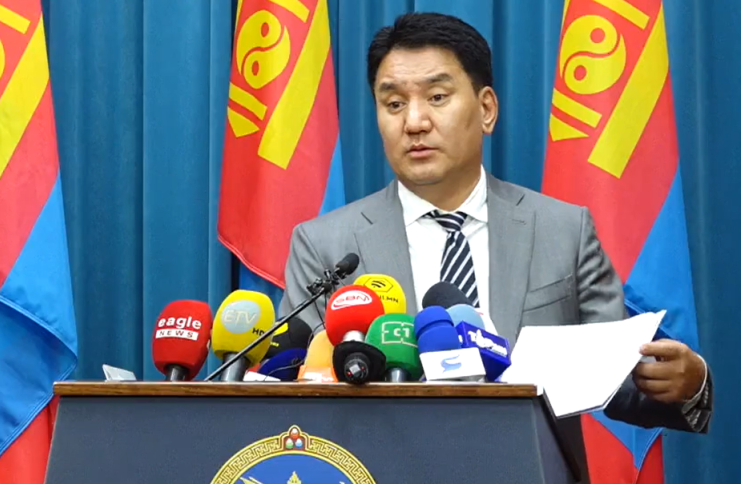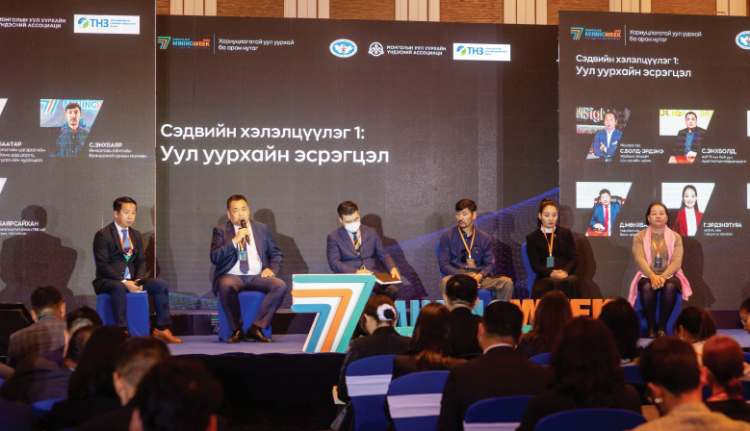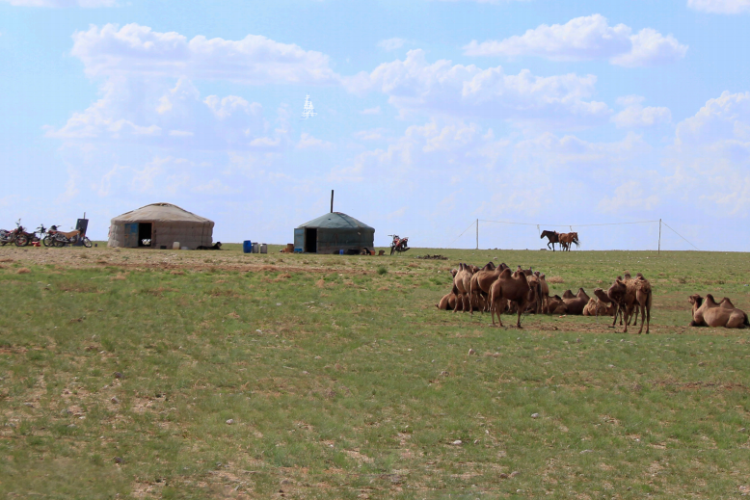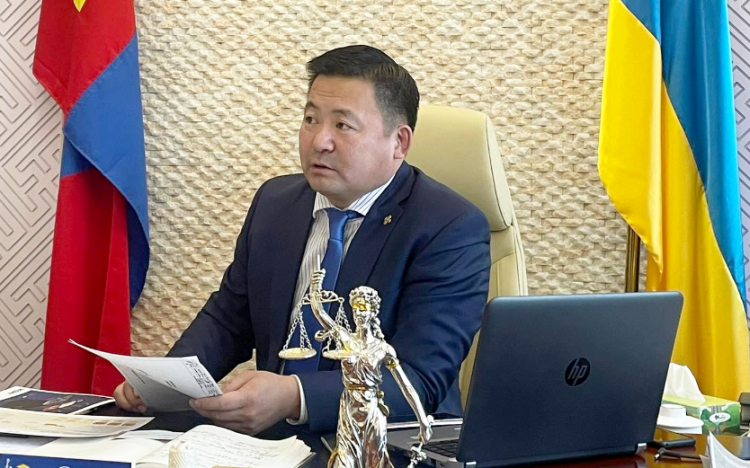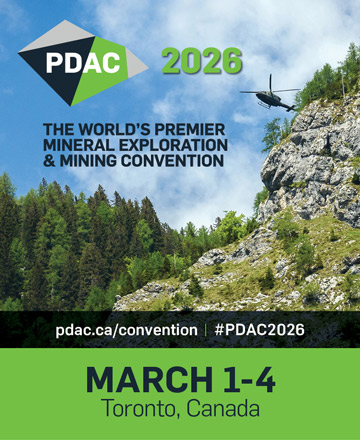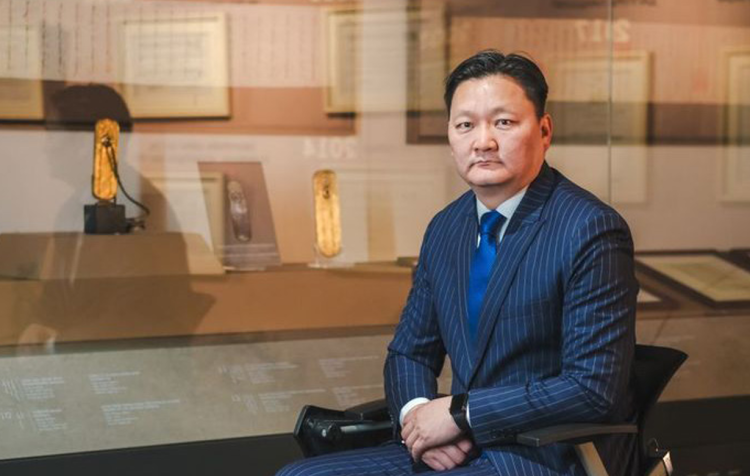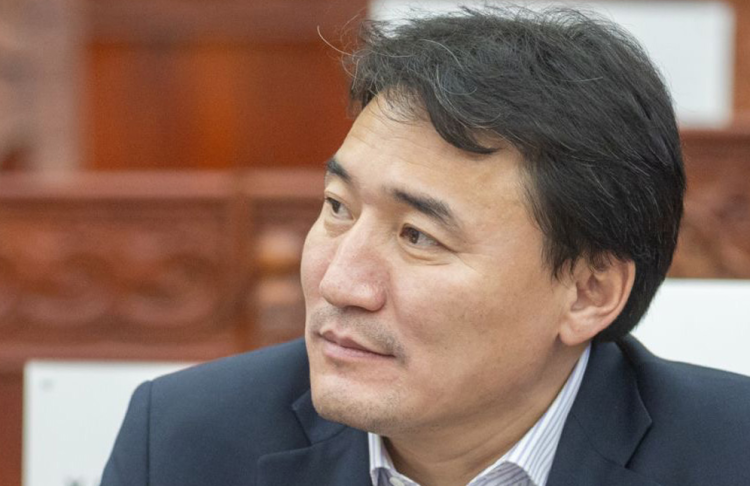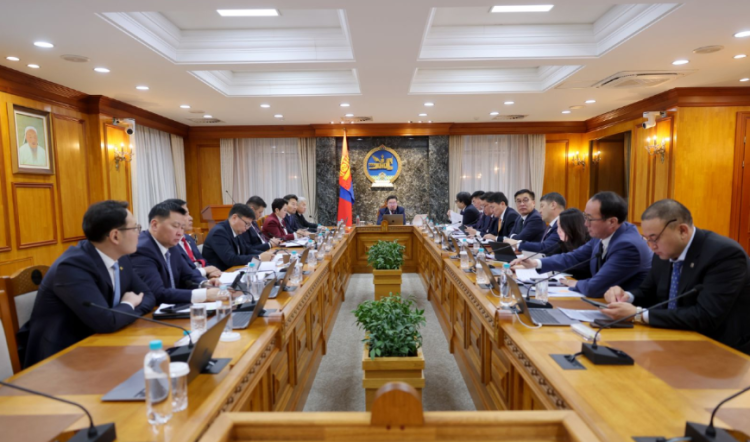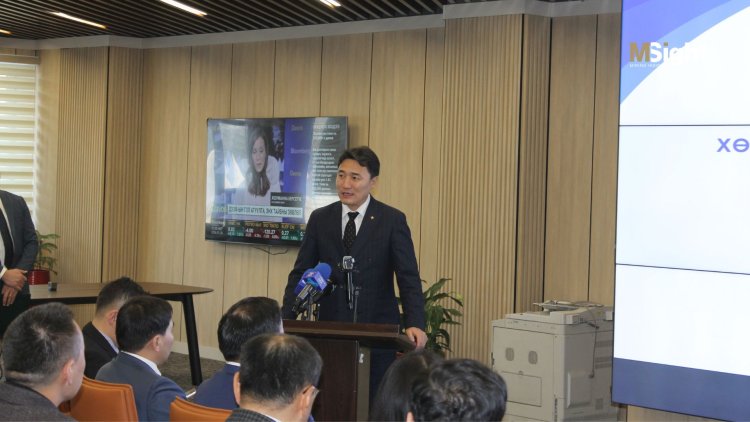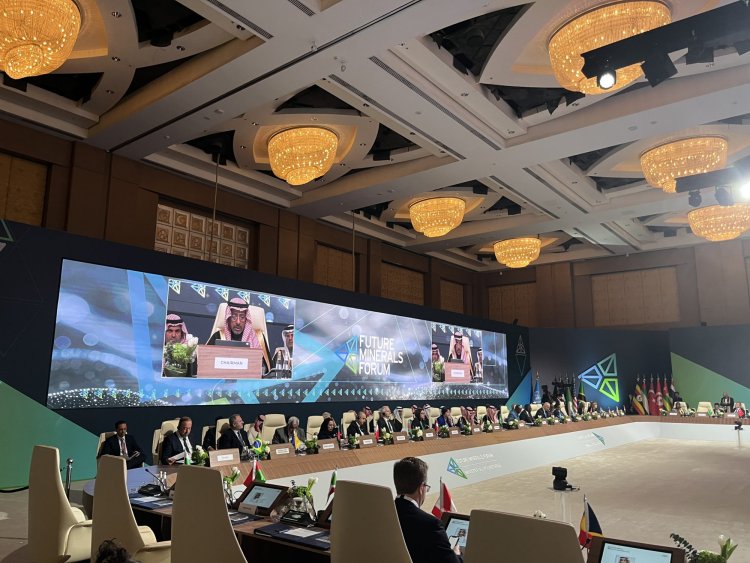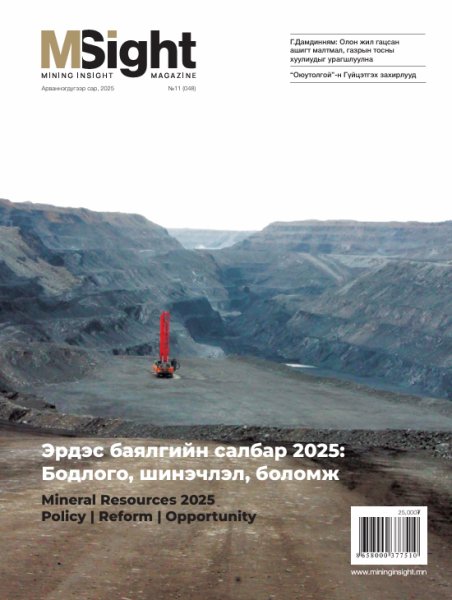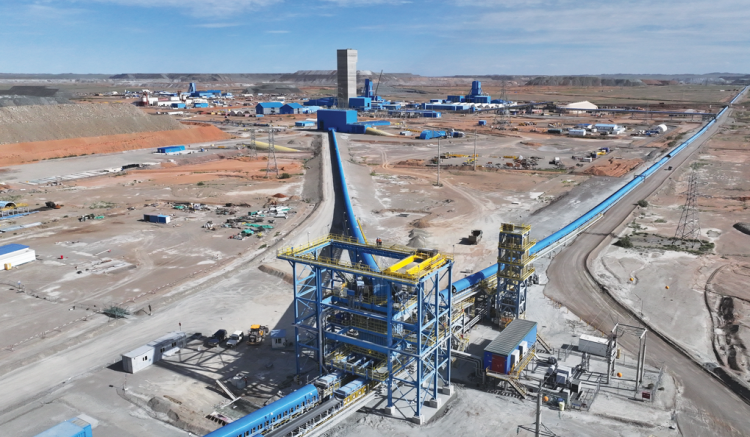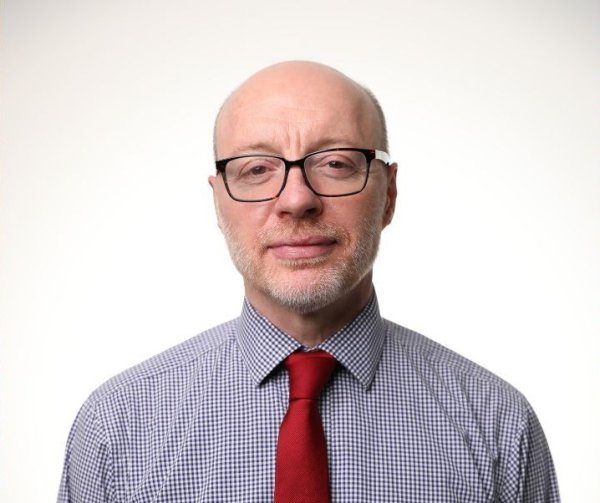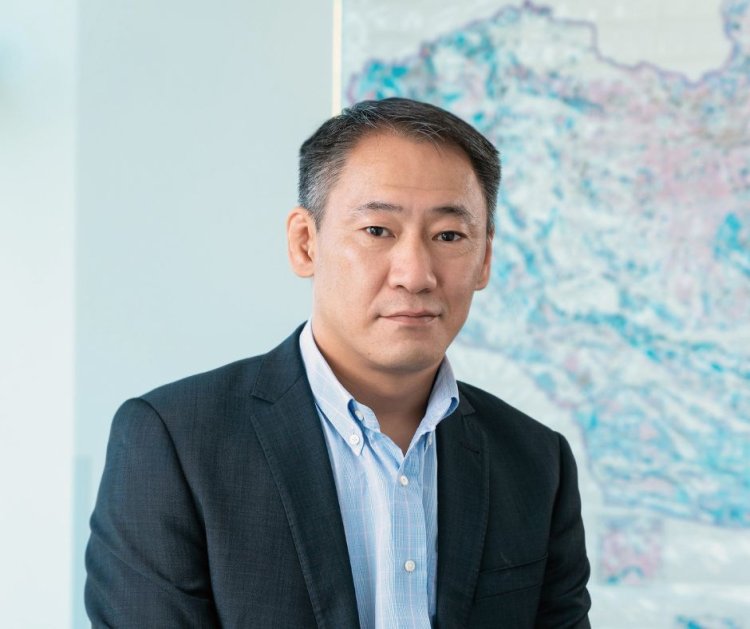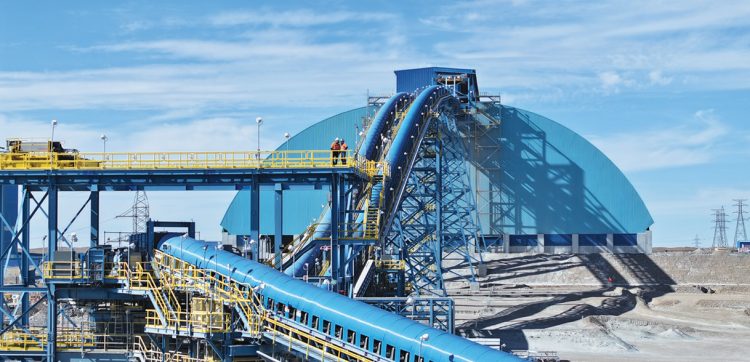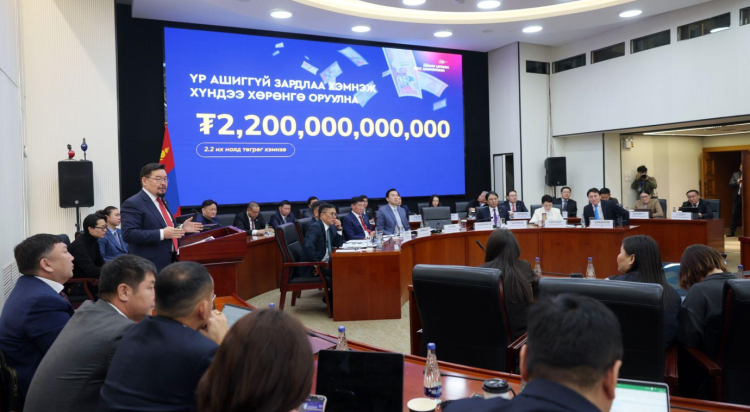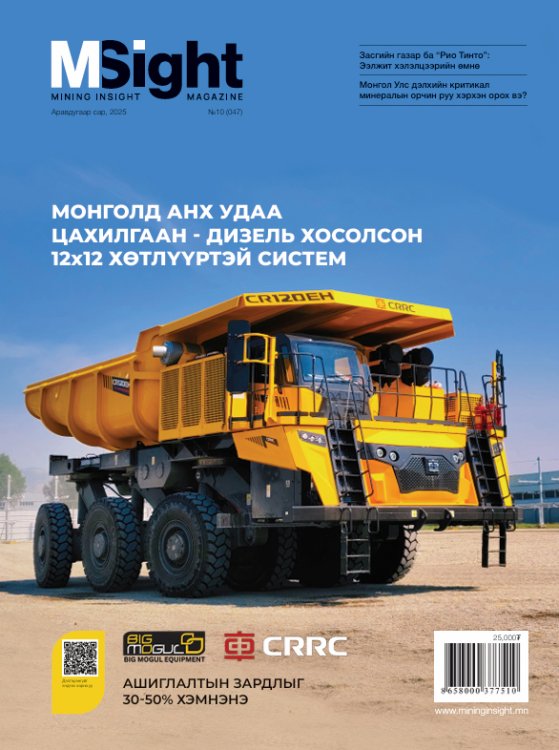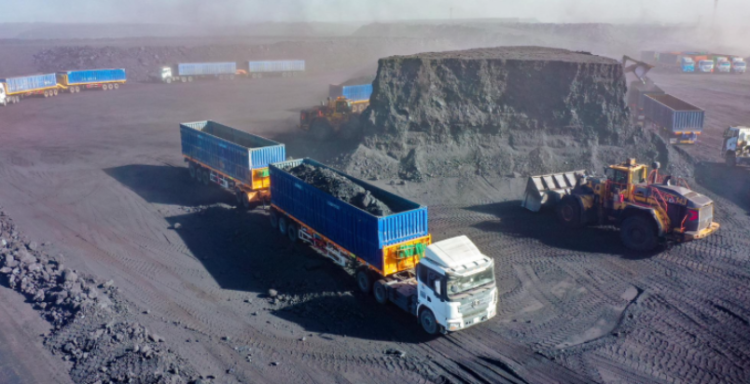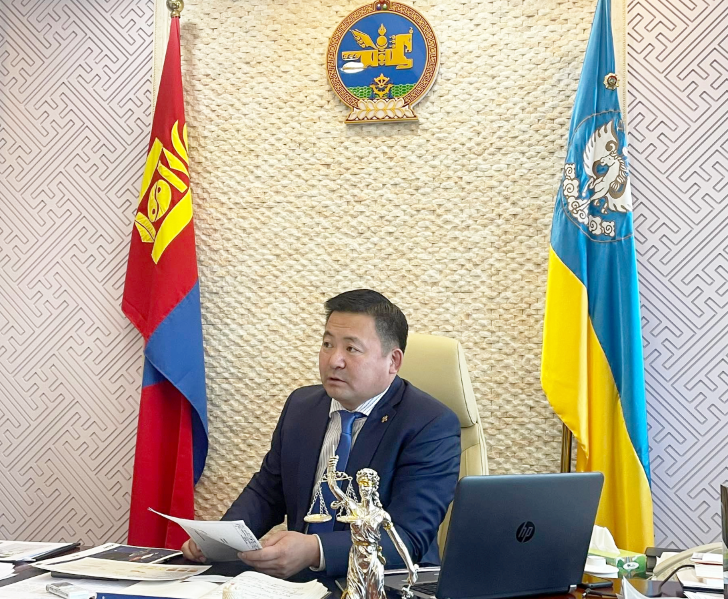 In recent years, the issue of local mining relations has become a major problem. It has become common for companies with mining licenses to go to local communities and face opposition from the people. Therefore, Mining Insight spoke with the Munkhbat.Ts Governor of Dundgovi province to convey the views of the local people at a time when the discussions on the revisions to the Minerals Law are in full swing.
In recent years, the issue of local mining relations has become a major problem. It has become common for companies with mining licenses to go to local communities and face opposition from the people. Therefore, Mining Insight spoke with the Munkhbat.Ts Governor of Dundgovi province to convey the views of the local people at a time when the discussions on the revisions to the Minerals Law are in full swing.What kind of changes is occurring in Dundgovi province due to mining?
Dundgovi province is a region with poorly developed mining. Although there are about 160 mineral licenses, there are hardly any mines that operate in a stable, responsible, and systematic manner. There seems to be a lack of significant progress in the province's development. The local government has set its sights on various key areas for improvement, such as upgrading road infrastructure, introducing advanced technologies, constructing housing developments, and enhancing the overall quality of life for their citizens. To achieve these goals, the province is looking to capitalize on its mining industry, which has the potential to generate substantial revenue quickly. By leveraging this industry, the local economy can grow and small and medium-sized businesses can flourish alongside it. Dundgovi province is home to more than 50% of Mongolia's lignite reserves and 30% of its limestone deposits. The region also boasts abundant fluorspar and gypsum resources, as well as valuable granite deposits that are widely used in construction. Recently, there has been growing interest from companies seeking to establish factories in these fields. Additionally, investors looking to build gypsum material factories based on our limestone deposits have expressed interest in working with us. By supporting and collaborating with these initiatives, there is a real opportunity for Dundgovi province to unlock the full potential of its mineral resources and achieve meaningful economic growth.
As for local governments, it appears that they are prioritizing mining development over the concerns of the community, potentially disregarding government regulations that are meant to protect the people's interests.
This kind of political maneuvering, including suspicions of favoring foreign companies, is not in the best interest of the community and could lead to negative outcomes.
What kind of plans or objectives is being implemented related to the mining industry?
I was appointed as the governor of Dundgovi province in December 2022. From my perspective, a significant development in the next 20-30 years may not be possible without mining playing a major role in the region. Therefore, a Mining Forum was organized throughout the province to promote responsible mining practices last year. The forum invited representatives from over 40 companies that held special licenses for mining activities in the province. Previously, companies with exploitation licenses would sign Social Responsibility Agreements with provinces or regions, but after the Mining Forum, they began signing tripartite agreements with provinces, soups, and enterprises. This was intended to ease the pressure on companies, as they could release funds within the framework of social responsibility to address problems in the province. Additionally, they would pay tuition fees or sponsor festivals and events in the schools they operate and provide solutions to problems related to fodder and well water for the herders. In short, mining companies became "fulfillers of desires" at three levels: provincial, soum, and bagh. Failure to comply with these agreements could result in resistance and struggle, which is a common issue. Small and medium-sized enterprises, in particular, face difficulties operating under such conditions. Our province is working with a basic concept based on the 3-way Social Responsibility Agreements. These agreements state that the company will pay an annual amount of money to the Social Responsibility Fund, which is part of the local development fund. 70 percent of the funds will be used by the province to address education, health, and other social issues, while the remaining 30 percent will be spent at the province's discretion. Companies only interact with the local administration, which is responsible for protecting the rights and obligations of the Social Responsibility Agreements and informing citizens about them.
Could you elaborate on the other matters that are addressed in the agreement?
Annually, contracts worth about MNT 10-100 million are signed depending on the scale and size of a company's operations. As part of the "Billion Trees" national movement, Dundgovi province has already planted 30 million trees, and the Social Responsibility Agreement contract now includes a provision for companies to plant a certain number of trees. Despite provisions in the contract for local supply and product purchases, implementation varies based on locality. For example, in Dundgovi province, there is no specific unit in charge of mining activities, with only one specialist responsible for managing environmental, mineral resources, and tourism issues. As a result, there are many challenges, including a shortage of specialists. The challenges differ at the soum level and are even greater at the provincial level. Mining activities are only present in certain soums of Dundgov province, leaving other areas without such activities. However, this does not mean that the problems of these areas should be ignored. Revenues generated from the Fees for Use of Mineral Resources by companies are channeled directly to the soum level through the local development fund. Soums with more special licenses are receiving a larger share of these funds. For example, Delgertsogt soum, with very few licenses, receives MNT 30-40 million, while Bayanjargal soum, with the most licenses, receives over MNT 580 million. Moreover, funding for Social Responsibility Agreements will increase by 30 percent. However, there are cases where some soums have an income of nearly MNT 1 billion but spend it inefficiently, resulting in a carryover of funds to the next year. Soums typically focus only on their issues, but the province aims to solve problems by taking a holistic approach that benefits all soums. As part of this approach, the province has implemented a policy of distributing 70% of corporate social responsibility funds equally among the 15 soums that have established social projects, making it accessible to all.
How do companies communicate and collaborate with local governments?
Companies' relationship with local administration is based on Social Responsibility Agreements, which is a requirement under the Law on Minerals. However, companies are mostly interested in establishing Social Responsibility Agreements with provinces, as they are not demarcated from the soums or provinces. Similarly, soum officials are also interested in working with provincial governments. Starting this year, a Memorandum of Understanding signed by governors of provinces with the Minister of Mining and Heavy Industry has clarified that "enterprises with an exploitation license should conclude a cooperation agreement with the province."
Licensee companies have their reports and plans approved by the Mineral Resources and Petroleum Authority and are required to sign a contract with the governor of the province to fulfill this role. This means that companies inevitably have to interact with local governments, but they generally do not care about the locality.
What types of investments and contributions are geological and mining companies making toward the development of the province?
There is nothing significant to say. Last year, Social Responsibility Agreements were signed with 26 companies. Few have fulfilled their contractual obligations. Mongolyn Alt (MAK) LLC is an exemplary responsible mining company that operates in the gypsum deposit of Delgerkhangai soum and the coal deposit in Bayanjargalan soum. The company pays benefits to the community and operates within the framework of social responsibility. MAK supports and invests in projects proposed by the administration of soums, and has gained recognition for its positive impact in the region. In addition to its commitment to social responsibility, MAK also promotes sustainable practices in the Gobi region. As there are several mines in the area, the company has implemented the "Botgond Bonus" program, which encourages herders to pay special attention to camel breeding. This program has been well received by herdsmen in the region. Additionally, it seems that the China-invested companies, “Chinhash” and “Shan Ji”, are currently operating in two iron ore deposits within the province. The local government has put forward particular proposals to these companies and they have also acknowledged their responsibility to collaborate with the local communities within the scope of social responsibility. “Erdenes Silver Resources” is a state-owned company that has struggled to build meaningful relationships with the local community. Despite receiving proposals from the local government, the company has not been widely accepted by the community. Local people believe that the company should operate in Dundgovi province with certain benefits for the community. To address these concerns, the 2020 agenda of the ruling Mongolian People's Party has proposed that a certain percentage of Erdenes Silver Resources will be owned by local people in the form of shares. However, the implementation of this proposal remains an issue. As such, I would like to bring this matter to the attention of the Parliament, urging them to take action and ensure that the proposed shares are distributed to the local community. The company in question has annual sales of around MNT 220 billion. Based on the standards of other provinces, it is expected that 2-3 percent of the company's annual sales should be invested locally in the form of construction and other investments. For example, Dornod province works with oil companies while Sukhbaatar province works with "Tsairt Mineral" LLC. In the same way, it is estimated that MNT 4-6 billion could potentially be invested in Dundgovi province from the sales of "Erdenes Silver Resources" LLC. This would be a significant investment for the province and could help to solve its social infrastructure challenges.
What are the possibilities for local companies to make purchases and supply from the province and soum?
The mines in the area source their immediate food locally, which is a positive step towards supporting the local community. Additionally, the Social Responsibility Agreements include provisions for the participation of drivers from Dundgovi Province in mine transportation, the supply of local goods and services, and the provision of work clothes. However, despite making offers to one or two companies, no concrete agreements have been reached. It is suggested that if the companies can agree to receive a certain amount of goods from the local area during a specific period, small business owners will be able to plan their workforce, wages, and technical equipment accordingly. This would not only benefit the companies but also support the growth of local businesses and the economy of the province.
To what extent is information related to mining activities in Dundgov province open and transparent?
Citizens were invited to participate openly in the first mining forum of the province. Representatives of some soum citizens freely expressed their objections and suggestions by not signing Social Responsibility Agreements with certain companies. The Law on the Budget of 2023 regulates the transparency of donations and profits from the mining sector. The Social Responsibility Agreements signed this year have not yet been uploaded to the account information of the provincial website. Open hosting, nothing to hide. The province has also been instructed to upload contracts to https://www.iltodgeree.mn/.
In general, do companies inform and engage with the local community about their activities, as well as their social responsibility initiatives and investments in the local area?
In the current scenario, it is common for a company holding a license to only communicate with the local community if they anticipate opposition from citizens, which many believe should be regulated. When faced with opposition, companies often complain to the Ministry of Mining and Heavy Industry or the Mineral Resources and Petroleum Authority and demand that local authorities enforce the law. However, companies need to engage in awareness and outreach efforts before commencing operations to prevent conflicts with local communities and herders. Failure to do so can result in significant conflicts between the company and the local community. We have several numbers of soums that have had or are currently experiencing issues. As for Bayanjargalan soum, our province has the largest number of licenses and operates many mines, As a result, it has attracted a significant amount of public attention. The Uranium license for Ulziit soum covers the territory of two or three soums. Uranium is considered a strategically important deposit of Mongolia. However, foreign investment in the deposit is regulated by an intergovernmental agreement, which is met with resistance from residents. The main fear of the people is whether uranium mining is harmful to humans and animals, and there is a lack of information on this topic, including research, analysis, and conclusions. Local people in Saikhan-Ovoo soum are opposed to the coal seam methane gas exploration by "Petrovis Resources" LLC due to a lack of understanding of the process and fear and caution surrounding it. The company holds an exploration license. To resolve the conflict and opposition, the local people need to be provided with scientific knowledge related to methane gas extraction. In Huld soum, there are a small number of mineral permits and a lot of fluorspar resources. Local artisanal miners have been digging in large areas, leaving them unrehabilitated. When fluorspar was actively mined and bought, almost every citizen participated and benefited to some extent. However, the benefits were not stable and short-lived. As a result, most of the young people spent their earned money on alcohol with only a few buying some vehicles.
The responsibility of mining companies in Dundgovi province is generally poor, with a lack of understanding of systematic mining development at the local level. Despite a few exemplary activities, they are not widely reported and disseminated. As a result, due to the lack of proper understanding, there is a negative attitude toward mining and a lack of support for mining activities.
Some guy with numerous licenses for fluorspar comes with a lot of equipment and leaves an empty hole, and the profit disappears without being known. For the past 30 years, Dundgovi province has been adversely affected by irresponsible actions. It is not surprising that locals oppose mining in the area. Professional organizations and companies need to take responsibility and work together toward a solution. Professional organizations should not be an institution that only hands out a paper saying, "A license has been granted in your area". They should educate the people about the mining industry, issue permits, and send official letters to local communities before they begin operations.
What is your opinion on possible solutions to improve relations and resolve the misunderstandings between the local communities, herdsmen, and the licensing company?
Companies that have obtained an exploitation license often aggressively come to the community, only to surprise and anger citizens when they begin operations with heavy equipment. Conflict with the community typically arises when companies fail to properly introduce and advertise their activities. Only after when they face opposition from citizens and herdsmen they begin the work of information and recognition. Resistance and struggle take time for both parties, and businesses spend more time and money when they don't report their activities early. Therefore, the Dundgovi province demands that companies first introduce and report their activities, and then cooperate with the local community to avoid issues. It has become clear in the last two years that residents' permission is essential for successful operations. On the other hand, The difficulties will persist if the licensing process's sequence and coordination are not carefully regulated through the 2006 approved revision of the Law on Minerals.
Thank you for the interview.
Mining Insight Magazine, March 2023
